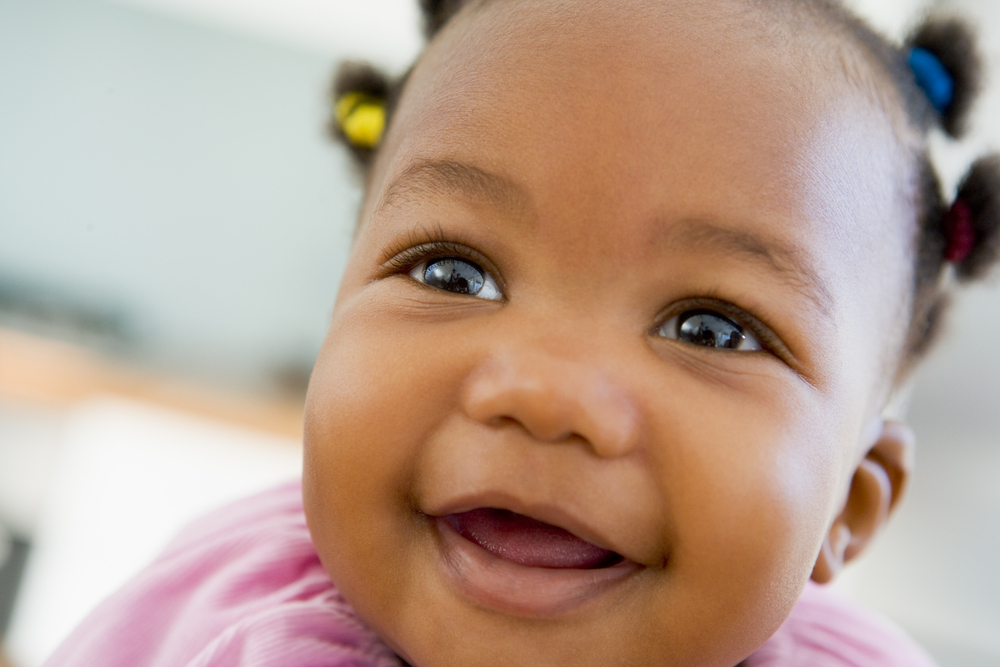
Baby see, Baby say. That's the idea behind a new study from Indiana University psychologists, who claim babies' first words can be predicted by the visual information they process.
Basically, if children see a certain object repeatedly, it makes an impression, and may help them associate words with those objects. As a lifelong shoe lover, that would explain why the first phrase I ever uttered was, "shoes on."
IU researcher Linda Smith explains, "We think that children's first words are predictable based on their visual experience with objects and the prevalence of those objects in their visual world." She adds, "Visual memory may be the initial key to getting words stuck on objects—familiar visual objects like table, shirt, bottle, or spoon. It's an aggregated experience; those very first words may be learned—slowly and incrementally—for a few visually pervasive objects. This may be how infants begin to break into language before their first birthday."
Smith and her team looked at videos from head-mounted cameras worn by eight kids (five girls and three boys) between 8 and 10 months old, which according to researchers is before babies would typically talk. Each mini-participant wore the camera for about 4.4 hours, during mealtimes. It's important to note parents and caregivers were only told the cameras would observe their tots' daily activities.
At the end of the data collection phase, researchers were able to review 917,207 mealtime frames and 745 objects. They focused on so-called "first nouns," or easy words babies tend to say early on, such as table, shirt, chair, bowl, cup, bottle, food, spoon, and plate.
"That infants' visual environment during mealtime consistently involves a very small number of objects—and the names of these high-frequency objects are among those normally learned first by infants—suggests visual experience is doing the heavy lifting in very early word learning," said Elizabeth Clerkin, a Ph.D. student at IU.
The new theory, which was presented at the National Science Foundation, has big implications for potential interventions for kids with language deficits and autism, according to researchers. "Difficulty learning words could stem from visual processing problems," Smith said. "Children who are late talkers have slow or age-delayed visual processing skills for objects, for example. Children with autism have object-processing problems as well."
Melissa Willets is a writer/blogger and a mom. Find her on Facebook where she chronicles her life momming under the influence. Of coffee.

